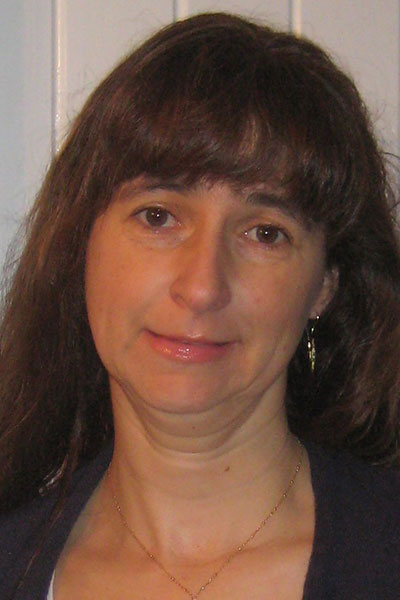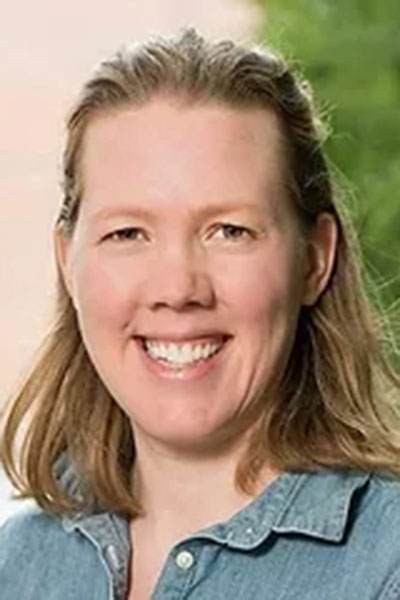Large-scale genome-wide association studies (GWAS) and polygenic risk scores (PRS) are two important concepts in the field of genetics that have shown promise as new tools in the prevention, early diagnosis, and management of type 2 diabetes.
The Saturday, June 24, symposium Multiancestry Genome-Wide Association Studies (GWAS) and Polygenic Risk Score (PRS) will examine these tools and how they are used to increase understanding of diabetes. The symposium will be held at 4:30 p.m. PT in Ballroom 6A-B of the San Diego Convention Center and will be available via livestream for registered meeting participants.

Inês Barroso, PhD, Professor of Diabetes, University of Exeter, United Kingdom, will discuss the use of GWAS for understanding glycemic traits. GWAS is an approach used to identify genetic variations associated with complex diseases or traits, such as those associated with type 2 diabetes.
To date, most genetic studies of type 2 diabetes and glycemic traits have been performed in individuals labeled to have European ancestry, Dr. Barroso said.
“We know that we are missing data from lots of diverse populations,” she explained. “As we are moving toward trying to integrate genetic information into precision medicine, it is important that everyone is represented in these studies.”
Dr. Barroso will discuss multiple measures that can be used to diagnose type 2 diabetes. These measures, like glucose or glycated hemoglobin, exist on a continuous scale rather than in the way they have been traditionally thought of: Patients have diabetes or they do not.
Researchers have been using tools like GWAS to study large populations and learn more about the genetic variants that are associated with different mechanisms that lead to the development of type 2 diabetes.
“What I plan to discuss is how increasing diversity in these studies is not only important for ethical and moral reasons, so that precision medicine will be able to be used for all, but it leads to better sciences as it enables more discoveries,” Dr. Barroso said.
“For the most part, what we do in genetics is group people by genetic similarities,” she continued. “This session is topical though because it is important to consider if genetic researchers are inadvertently sending out incorrect messages and returning us to an unsavory past of eugenics.”
There are no groups in the human population that are clearly distinct from one another. The human population exists on a continuum, Dr. Barroso said.
“Any line geneticists draw is an artificial line,” she said. “Nonetheless, we do know there are some genetic variants that may change in frequency in different populations around the world, probably in response to environmental exposure or other factors.”
Dr. Barroso said all of this needs to be kept in mind as researchers work to diversify the population of patients included in GWAS related to diabetes and glycemic traits.

Alisa Manning, PhD, Assistant Investigator in the Clinical and Translational Epidemiology Unit at Massachusetts General Hospital, Instructor of Medicine at Harvard Medical School, and Associated Scientist in the Metabolism Program and the Data Science Platform at Broad Institute at the Massachusetts Institute of Technology, will present information on PRS and how they are used for precision medicine in diabetes.
“There are a number of examples of why we would want to use genetics to predict individual risk for future diabetes,” Dr. Manning said.
One example is a pregnant individual diagnosed with gestational diabetes. In this situation, clinicians could leverage a PRS model to determine if the patient is at higher risk or lower risk of being diagnosed with type 2 diabetes in the future based on genetics.
Currently, the use of PRS tools is in early stages of use in the clinic, Dr. Manning explained. There are major efforts at the National Human Genome Research Institute (NHGRI) to develop methods for polygenic risk prediction models in diverse populations, and to determine the utility of these models in the clinical setting through a large program called eMERGE (Electronic Medical Records and Genomics).
Dr. Manning also will discuss how studying diabetes in diverse populations, specifically Hispanic populations, can lead to better risk prediction models that fit all humans.
“Hopefully, attendees will come away having learned that genetic studies for diabetes are expanding in many directions, including diversity of the individuals being studied, components of diabetes, diabetes complications, and more,” Dr. Manning said.
Cassandra N. Spracklen, PhD, Assistant Professor of Epidemiology, University of Massachusetts Amherst, will discuss utilizing multiancestry GWAS to elucidate biological mechanisms for type 2 diabetes.